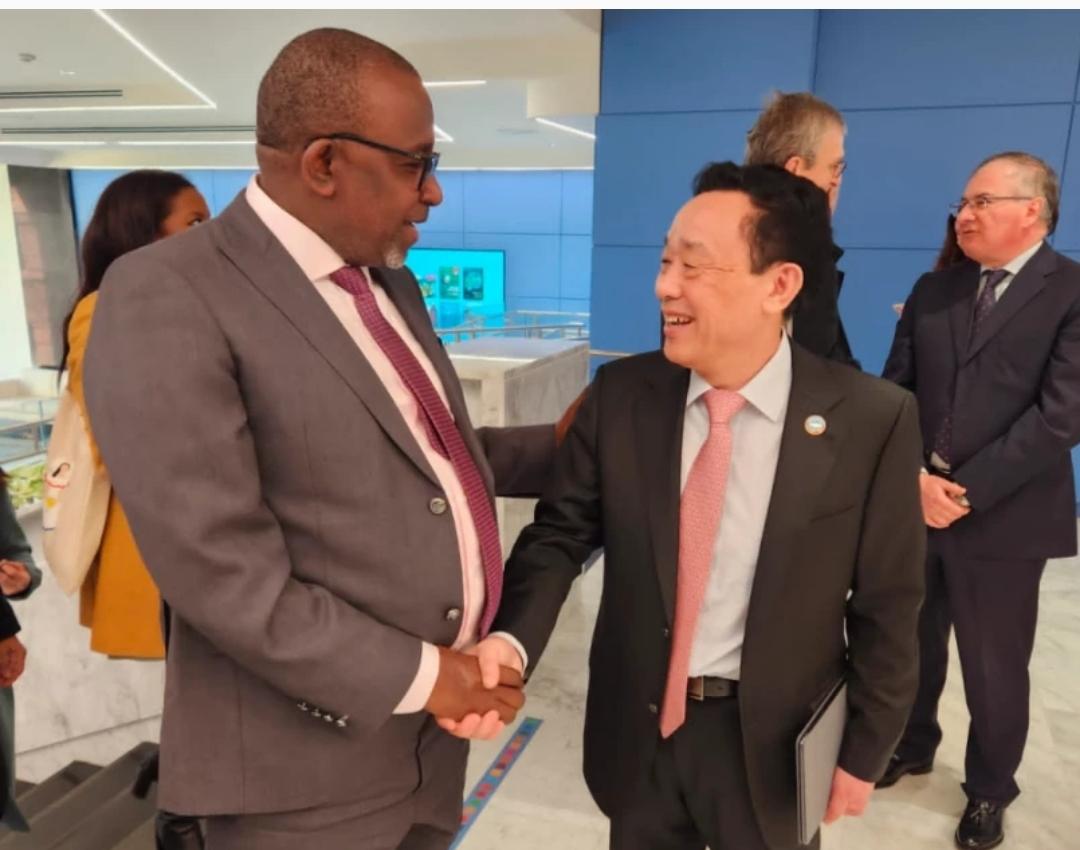
The government will prioritize the transformation of the agricultural sector as a way of accelerating implementation of the bottom-up economic model.
Agriculture and Livestock Development Cabinet Secretary Mithika Linturi said this during the ongoing 46th session of the International Fund for Agricultural Development (IFAD) Governing Council meeting in Rome, Italy.
The Cabinet Secretary said the transformation and rapid growth of Kenya’s agricultural sector remain central to ensuring the sector consistently contributes towards the ten per cent annual GDP growth as envisioned in Kenya’s Vision 2030.
“The economic pillar under the Vision 2030 places a strong emphasis on agriculture and establishes the agenda for inclusive growth and people-driven sustainable development by 2030. This is in line with the food systems transformation as stipulated in the 2030 Agenda for Sustainable Development,” he said while addressing the IFAD Governing Council meeting.
Linturi told the agriculture summit that the Kenyan Government has identified stakeholder collaboration from both the Public and Private Sectors as a key driver in food systems transformation.
“IFAD’s agricultural transformative initiatives have therefore been timely in supporting the Government efforts of transforming our rural communities economically and socially, as well as promotion of gender equality and inclusiveness,” he said.
The Cabinet Secretary further stated that among the initiatives put in place by his ministry to accelerate investment in transforming food systems include; using data and digital technologies to equip farmers with integrated agro-advisories, tapping into youth to engage in agricultural value chains by leveraging on digital technologies and innovations.
Other measures include investing in irrigation to use the land, especially in Arid and Semi-Arid Lands, utilization of Public land under the Public Private Partnership approach to increase area of production, investing in early warning systems - use of aerial surveillance and geospatial technologies for informed decision making, promotion of diversification of diets to bring back traditional high-value crops among others.
Agriculture is the mainstay of Kenya’s economy, contributing over 50 per cent of Kenya’s Gross Domestic Product (GDP) with 34 per cent directly and another twenty-seven per cent indirectly through linkages with other sectors.
In addition, Agriculture has the highest employment multiplier effect than any other sector, owing to its strong forward and backward linkages to other sectors of the economy.
“Research conducted by our policy makers shows that livestock (cattle, sheep, and goats), hotels and restaurants, poultry, vegetables, and rice have the highest job-creating impact. It is worth noting that four of these five value chains with the highest job creating impact in Kenya are agricultural based,” stated Linturi.
IFAD is a specialized agency of the United Nations and International Financial Institutions.
The meeting was attended by President of the Federal Republic of Somalia, Sheikh Mohamud, Prime Minister of Barbados, Mia Amor Mottley, President of IFAD Alvaro Lario, Director general of the Food and Agriculture Organization of the United Nations (FAO), Qu Dongyu, Italian Minister for Foreign Affairs Antonio Tajani, Kenyan Ambassador to Italy, Jackline Yonga, Senate Agriculture Committee Chairman James Kamau among other delegates.
The IFAD President appealed to all concerned parties in the agricultural sector to scale up the transformation of food systems and improve food security globally.
“The food crisis we face today is too large for any single institution or state to solve on its own. Global challenges require a global response,” Lario said.
On his part, FAO Director General Qu Dongyu called on efforts to improve the potential of innovation and technology in agriculture.
“FAO’s new Science and Innovation Strategy will enable us to step up our efforts and address the urgent, complex and interlinked challenges facing our agrifood systems, by driving a new business model to help us deliver better,” added Dongyu.
Dongyu further appealed to the global agricultural stakeholders to increase responsible investments in agrifood systems and rural development in order to reduce hunger and poverty, while safeguarding the planet.
Meanwhile, Linturi also held a consultative meeting with the President of the Federal Republic of Somalia, Sheikh Mohamud on the side-lines of the IFAD summit in Rome.
The Cabinet Secretary appealed to Mohamud to take advantage of the opportunities in Kenya’s agricultural sector, especially in the miraa industry. Somalia is one of the major export markets for the popular Kenyan cash crop.
“We are aiming to increase the miraa exports to Somalia and other nations and also remove trade barriers that hinder growth of the Miraa industry as a cash crop for our famers,” Linturi added.
𝗦𝗲𝗺𝗮𝘀𝗼𝗰𝗶𝗮𝗹 𝗶𝘀 𝘄𝗵𝗲𝗿𝗲 𝗿𝗲𝗮𝗹 𝗽𝗲𝗼𝗽𝗹𝗲 𝗰𝗼𝗻𝗻𝗲𝗰𝘁, 𝗴𝗿𝗼𝘄, 𝗮𝗻𝗱 𝗯𝗲𝗹𝗼𝗻𝗴. We’re more than just a social platform — from jobs and blogs to events and daily chats, we bring people and ideas together in one simple, meaningful space.